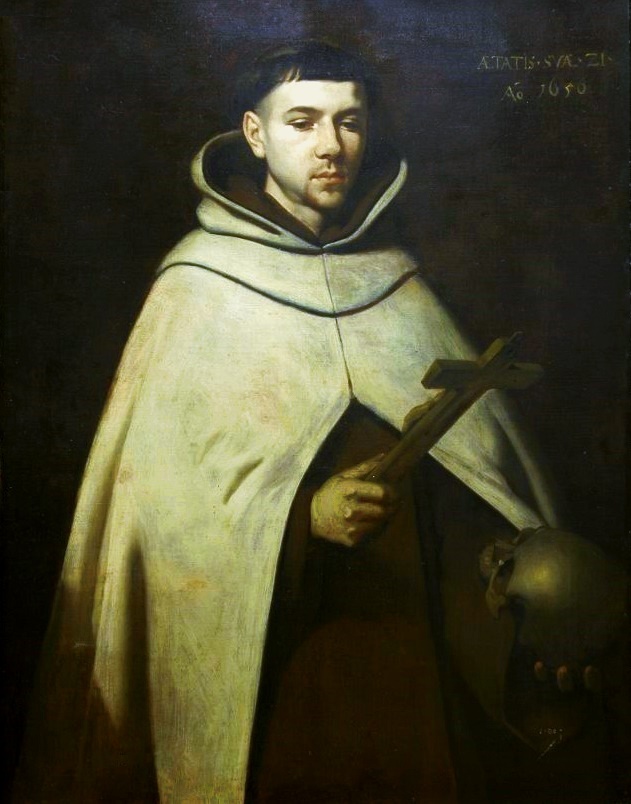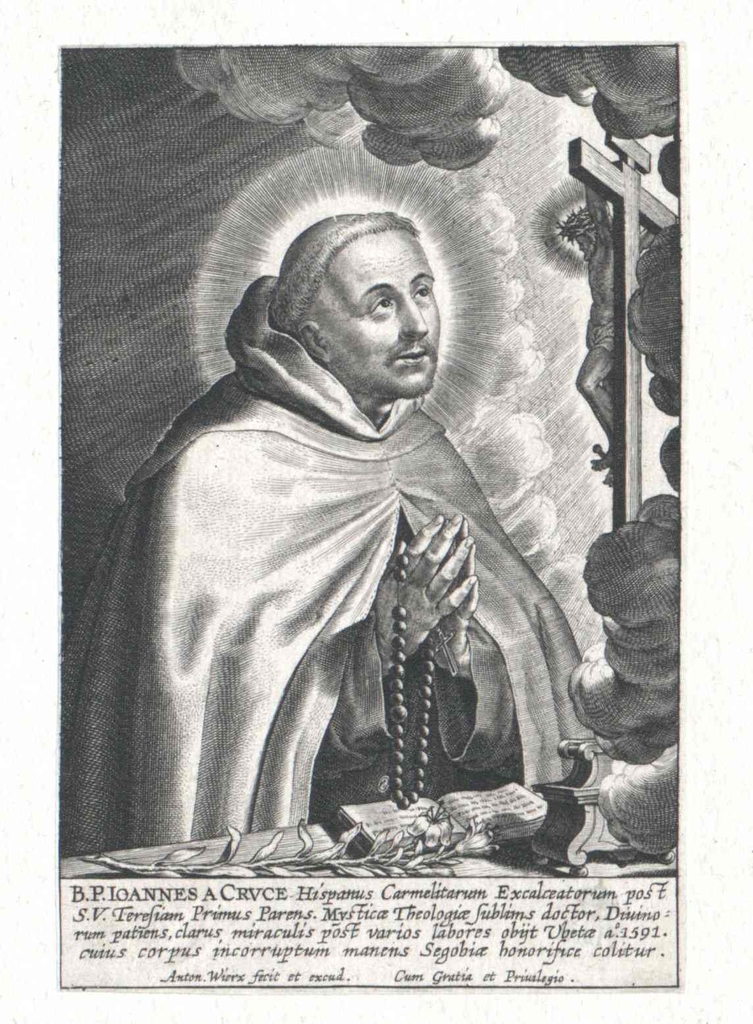
Catholic Saints
Saint John of the Cross, born Juan de Yepes y Álvarez on June 24, 1542, in Fontiveros, Spain, emerged from humble beginnings to become a towering figure of the 16th century as a Carmelite friar, mystic, and Doctor of the Church. Raised in poverty after his father’s early death, he worked as a nurse’s assistant while studying with the Jesuits, laying the groundwork for his spiritual journey. Joining the Carmelite Order in 1563, he later collaborated with St. Teresa of Avila to reform it, adopting the Discalced lifestyle of austerity and contemplation. Renowned for his sublime poetry and profound writings on the soul’s union with God—most notably The Dark Night of the Soul—he endured imprisonment and hardship to articulate a mystical theology that continues to inspire. He died on December 14, 1591, in Úbeda, Spain, and his feast day is celebrated annually on December 14, honoring his enduring legacy in Christian spirituality.
His feast day is celebrated on December 14.
Doctor of the Church
Born in 1542 in Spain, John became a mystic and key figure in the Carmelite reform.
Juan de Yepes y Álvarez was born on June 24, 1542, in Fontiveros, Spain, to a poor family. His father, Gonzalo de Yepes, died when John was young, leaving his mother, Catalina Álvarez, to raise him and his brothers in hardship. John worked as a nurse’s assistant in a hospital in Medina del Campo while studying with the Jesuits, and in 1563, at age 21, he joined the Carmelite Order, taking the name John of St. Matthias.
Seeking a stricter life, John met St. Teresa of Avila in 1567, who enlisted him in her reform of the Carmelite Order. He adopted the name John of the Cross and embraced the Discalced ("barefoot") Carmelite way of poverty and contemplation.
John played a vital role in establishing the Discalced Carmelites, founding their first male monastery in Duruelo in 1568. His commitment to reform led to conflict with unreformed Carmelites, who imprisoned him in Toledo in 1577 for nine months. During this time, in a tiny, dark cell, he composed some of his most profound poetry, including parts of The Spiritual Canticle.
After escaping, John continued his work, writing major treatises like The Dark Night of the Soul and The Ascent of Mount Carmel, which explore the soul’s purification and union with God. His mystical theology, blending poetic beauty and spiritual depth, earned him the title "Mystical Doctor."
John died on December 14, 1591, in Úbeda, Spain, after suffering from illness and internal conflicts within the order. Beatified in 1675 by Pope Clement X and canonized in 1726 by Pope Benedict XIII, he was declared a Doctor of the Church in 1926 by Pope Pius XI. His relics are venerated in Úbeda.
Known as the patron of mystics and contemplatives, John’s writings remain foundational in Christian mysticism. His teachings on detachment and the "dark night" continue to inspire those seeking a deeper relationship with God.
Born in Fontiveros.
Born into a poor Spanish family in Fontiveros on June 24.
Worked as a nurse’s assistant in Medina del Campo.
Studied with the Jesuits.
Began his religious life.
Entered the Carmelite Order as John of St. Matthias.
Joined her reform efforts.
Adopted the Discalced lifestyle.
Founded Duruelo Monastery.
Established the first Discalced Carmelite monastery for men.
Wrote poetry like The Spiritual Canticle in captivity.
Imprisoned in Toledo for nine months.
Escaped imprisonment.
Fled Toledo and resumed reform work.
Died in Úbeda on December 14; canonized in 1726.
Passed away after illness.

"In the dark night of the soul, bright flows the river of God."
Saint John of the Cross Quotes
"He who interrupts the course of his spiritual exercises and prayer is like a man who allows a bird to escape from his hand; he can hardly catch it again."
"In the dark night of the soul, bright flows the river of God. The soul must pass through this night to reach the divine light, for only in darkness is the spirit purified."
"To love is to labor to divest and deprive oneself for God of all that is not God."
"The soul that walks in love neither tires others nor grows tired itself."
"Strive to preserve your heart in peace; let no event of this world disturb it. For all things pass away, and only God remains."
"Where there is no love, put love—and you will find love. For love transforms the lover into the beloved, and thus the soul becomes one with God."